
IDB, KfW, NAFIN, Santander and Zeroca Lead the Financing of Sustainable Investments in Clean Transportation
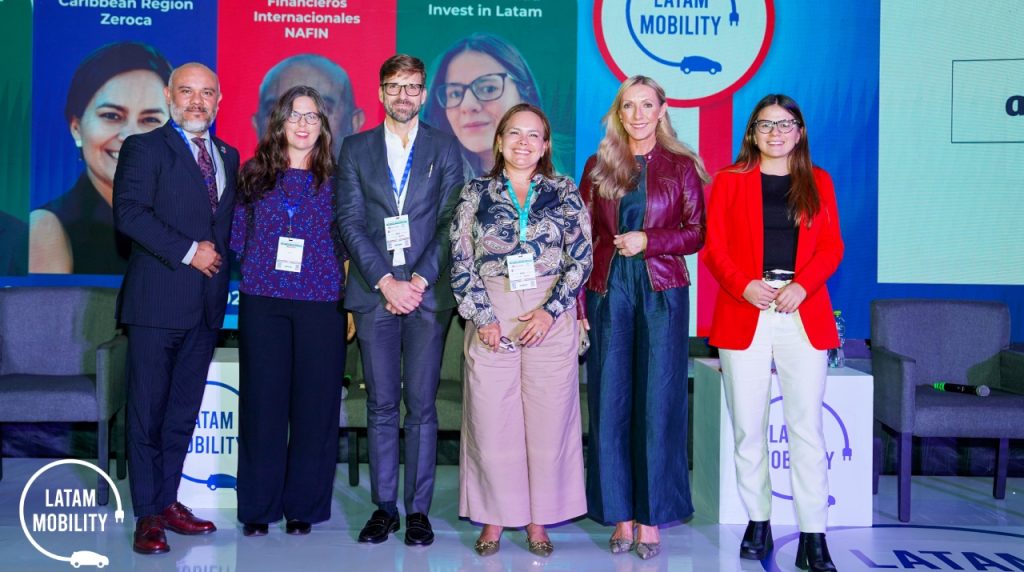
The “Latam Mobility: Mexico 2024” received the panel “Sustainable Investments in Clean Transportation”, with the aim of learning about the projects that are being financed in the sector.
Mariuz Calvet, Chief Sustainability Officer of Santander Mexico, assured that the bank’s sustainability strategy is globally aligned to execute sustainable financing.
“Our focus is to finance sustainable activities by labeling transactions and more sustainable business models when evaluating our clients,” she explained.
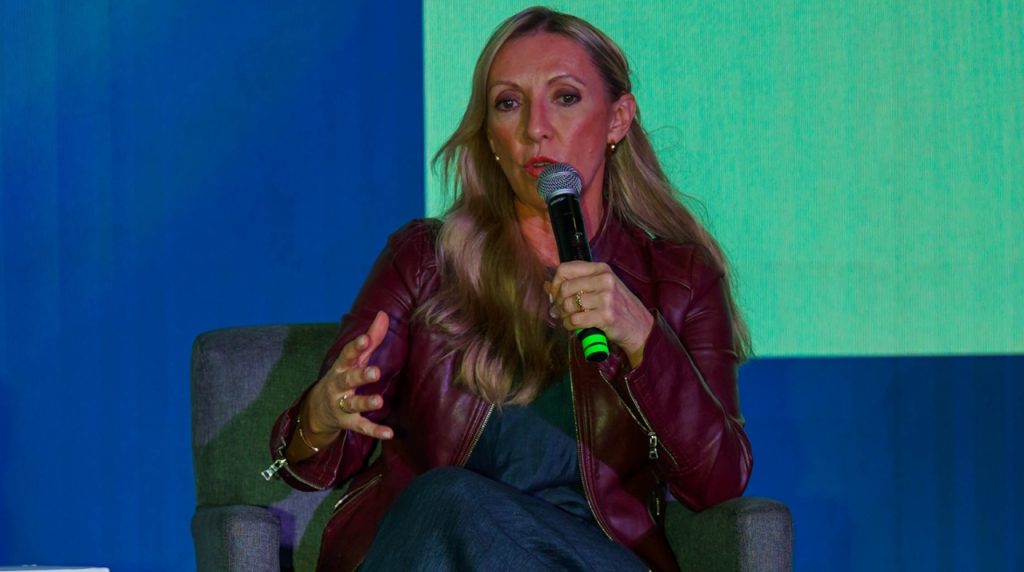
He stressed that the bank’s sustainable financing stems from a roadmap to decarbonize its own products, specifically in the portfolio to impact the carbon footprint.
“We have to engage with clients on what we are lending money for, there are climate sectors that represent more emissions such as transportation and that is where we must finance sustainable projects and place as green credits or green bonds,” Calvet emphasized.
IDB and Electromobility
Raul Rodriguez Molina, IDB Senior Transport Specialist, highlighted his experience in coordinating electromobility initiatives for public transport, which the bank addresses in a multisectoral manner.
“We have to insert support for transportation in a systemic approach that has an impact on the mobility of the city, that is the basis of financing, improving the mobility of cities,” he emphasized.
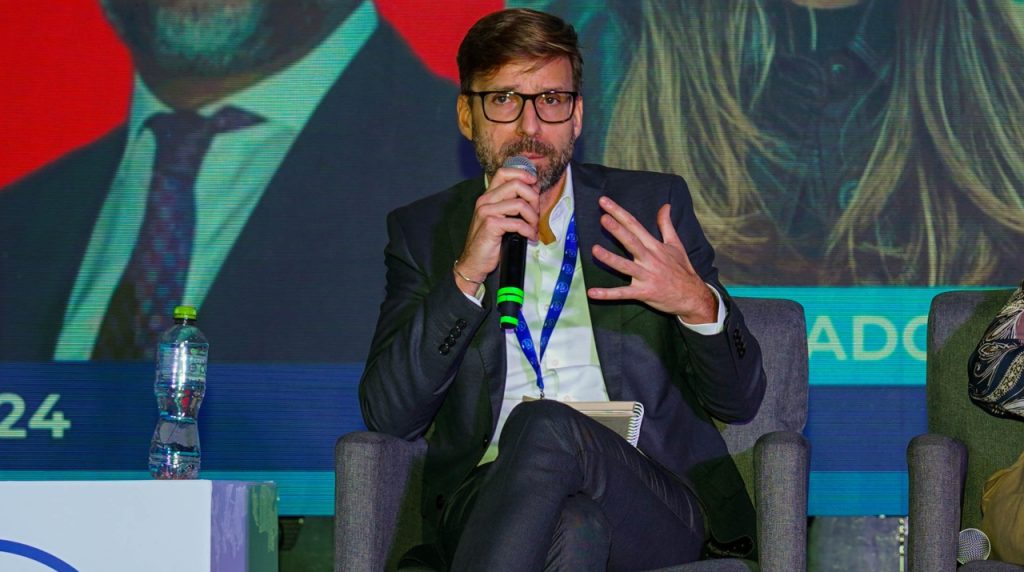
He affirmed that both in Mexico and Latin America there are great investment opportunities, and stressed that one of the first steps to promote sustainable mobility is to reduce the number of private vehicles in order to speed up the decarbonization process.
He pointed out the case of Mexico, where progress is being made in the area of legislation to bring a solid electromobility strategy to all states.
The Impact of Zeroca
Susana Ricaurte, Leader for Latin American and Caribbean Region of Zeroca, explained that they have been working in the carbon and transportation market for more than 30 years, with domestic voluntary plans and compliance.
“In Mexico we have a long list of successful greenhouse gas reduction projects and resources for financing,” said the executive, “We see great opportunity in Latin America and the Caribbean.
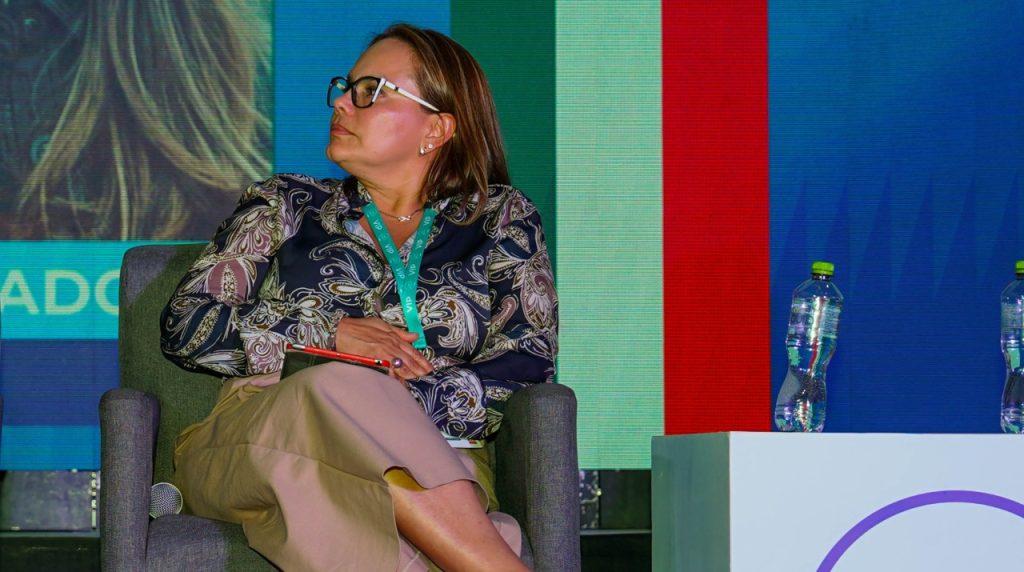
“We see great opportunity in Latin America and Mexico to take transportation projects to the carbon market, national markets are being developed and we are waiting for the response of the federal government in articles for projects, we are also waiting for the response of the COP29 on the multilateral market”, she explained.
He assured that currently there are many sources of financing from different actors and market mechanisms of the Paris Agreement, which should be used by those who need it.
NAFIN’s Financial Coverage
Ivan Vicente Cornejo Villalva, NAFIN’s Director of International Financial Institutions, emphasized that as part of its sustainability strategy to be able to design new products.
“The transportation value chain is super wide, from the assembly, shippers, we are interested in supporting in covering the financing gap where the bank sees too much risk, if you go for a financing for an industrial ship it is available as long as the company has a balance and is sustainable,” he said.
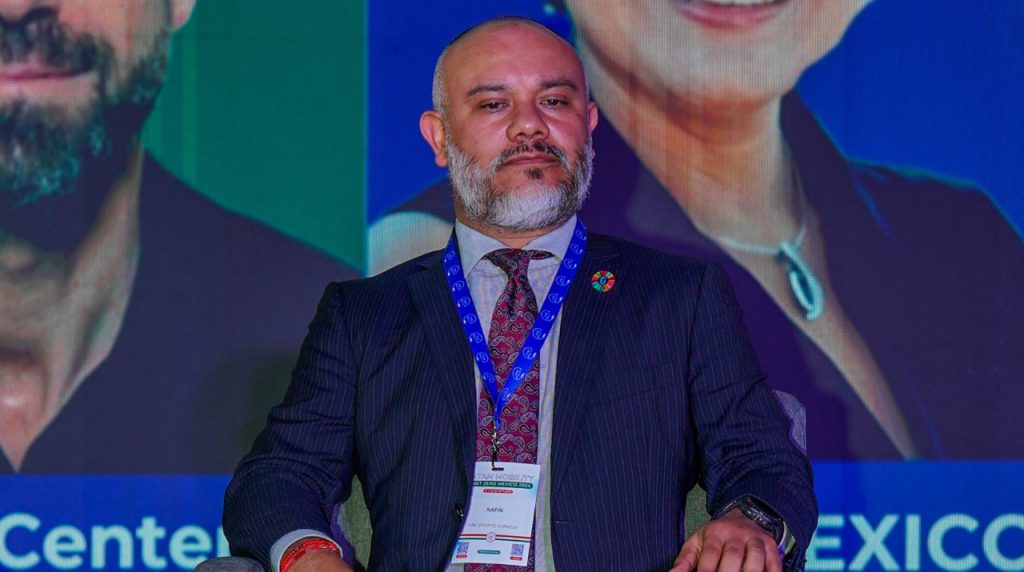
Cornejo highlighted the collaboration they have with the German Development Bank, with financing of 100 million dollars accompanied by a donation of 10 million for lost fund for scrapping vehicles that are obsolete.
“We focus on helping large companies to achieve emissions reductions in the value chains of small and medium-sized enterprises. The big step is for large companies to help their supply chain,” he concluded.
KfW and the Electromobility Drive
Fabiola Gómez, Senior Program Coordinator of the German Development Bank (KfW), referred to the alliance they sealed with NAFIN to support electromobility initiatives in Mexico and Latin America.
“We are working on fleet replacement projects, from a cab to a 3.5 ton truck, it is one of the great opportunities,” she assured.
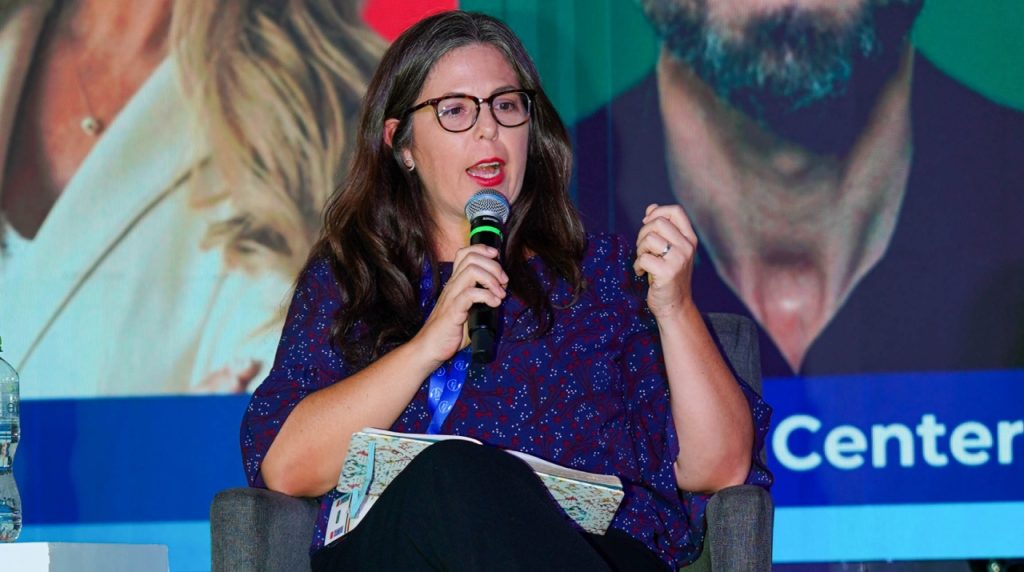
“We are trying to focus on electromobility, but we know that Mexico is not 100% ready, so we are also betting on transition technologies such as diesel euro 5. We see potential for investment in charging infrastructure,” he added.
She pointed out that, if the focus will be on electromobility, a key aspect such as digitalization, gender and accessibility approaches must be taken into account.
“The more data there is the better the projects are going to be,” she concluded.





